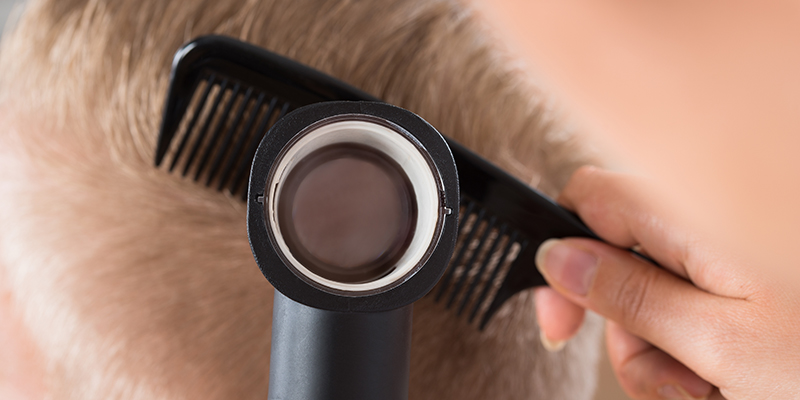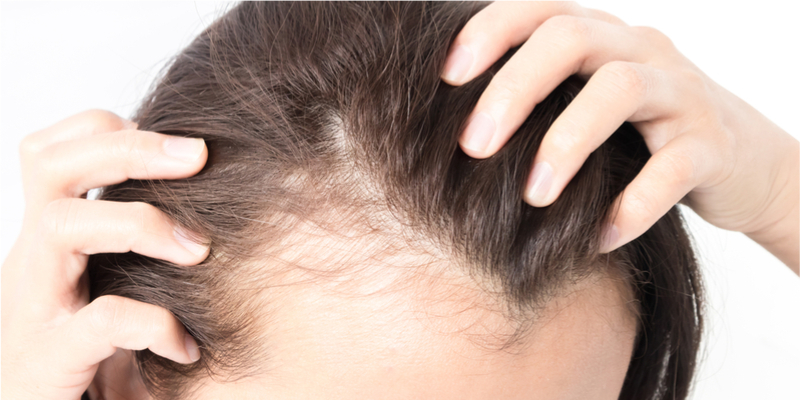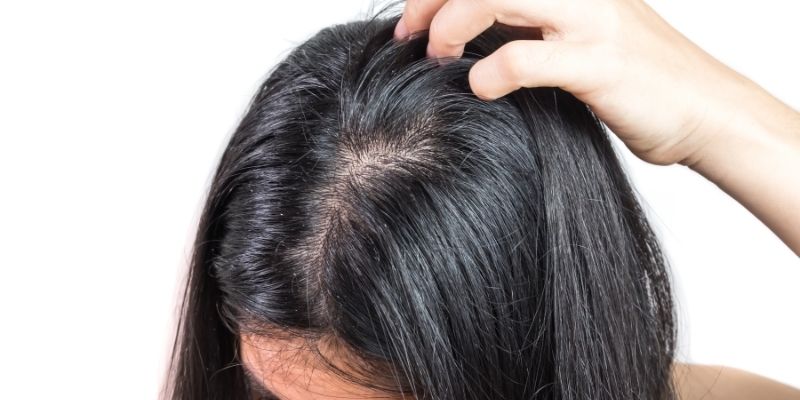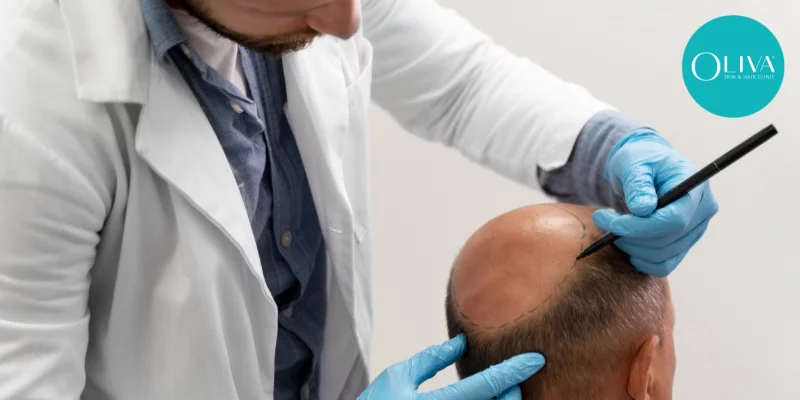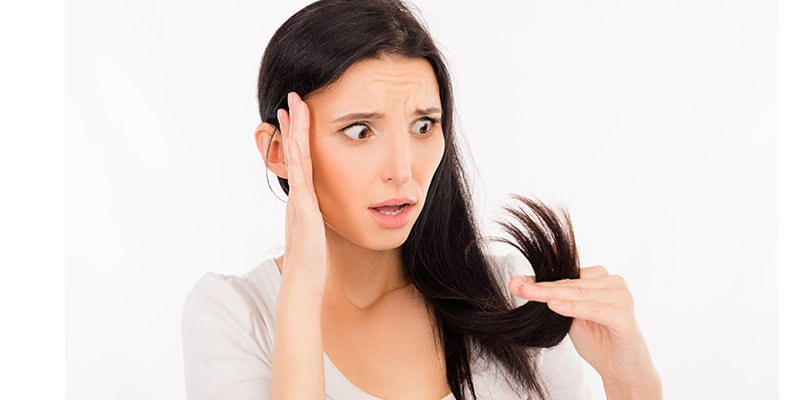Scalp Infections: Types, Symptoms, Causes, Treatment & Prevention Tips
Our scalp is quite sensitive and is prone to infections of numerous kinds. While it might not seem drastic at first, a scalp infection can have a long-term impact on our hair growth. For instance, a fungal infection on the scalp can damage our hair follicles and make our hair thinner in the long run. From sweating to overactive oil glands, there could be different reasons for a scalp infection.
What Are Scalp Infections?
As you know, the skin on our head is quite sensitive and due to the presence of so many hair follicles, it can be infected pretty easily. When an infectious agent like bacteria, fungus, or virus propagates, it leads to a scalp infection. While it does not have an immediate effect due to its superficial nature, it can gradually destroy our hair follicles.
If you have an oily scalp, then you are more likely to get the common scalp infections. This is because oil can plug the pores and make your scalp a breeding ground for infection. Besides that, it is quite common to catch someone else’s scalp infection by using their comb, helmets, and other products. Unwashed hair, precipitation, and stress are some of its other triggers.
Types Of Scalp Infections
Both men and women of any age can suffer from a scalp infection. While baby scalp infection is mostly related to a fungal growth, adults can suffer from viral and bacterial infections as well –
- Malassezia Infections – This is one of the most common type of scalp infection related to fungal out-growth. It happens due to hormonal changes in our body, which results in excessive oil production on the scalp. Coupled with an unhygienic scalp, it can lead to a rapid fungal growth
- Tinea Capitis – Also known as the ringworm infection, this is another chronic fungal infection related to the scalp. It is caused by the species of dermatophytes and leads to round bald patches
- Bacterial Folliculitis – This looks like scalp acne as it is caused by the damaged hair follicles. Based on its severity, it can be superficial or deep. Since it is contagious in nature, this bacterial infection on the scalp can be caused by the sharing of combs, pillows, etc.
- Viral Infections – While a dedicated scalp virus infection is uncommon, an existing infection can sometimes propagate to the scalp. For instance, Chickenpox or Herpes simplex virus can also infect our scalp besides the rest of the body
- Lice Infection – One of the worst types of scalp infections, this is caused by blood-sucking tiny insects. Although it is quite contagious, it can easily be treated by consecutive hair washes
- Seborrheic Eczema – This baby scalp infection is painless and is limited to a certain area. It happens in infants and goes away on its own with time.
Signs And Symptoms Of Scalp Infection
Since there are several types of scalp infections, they can have different symptoms as well. Ideally, you should consider these as alarming scalp infection symptoms –
- Itchiness on the scalp
- Rashes and soreness
- Thinning and breaking of hair
- Dandruff
- Unexpected hair loss
- Formation of scales
- Pimples on the scalp
- Dryness and discomfort on the scalp
- Bald patches
- Minute pain
These are only a handful of signs for scalp infection. Also, it is not necessary to experience all these scalp infection symptoms at once. Sometimes, bacterial or fungal growth can occur without these signs of scalp infection as well.
Scalp Infections That Cause Hair Loss
As stated above, there are different types of scalp infections. Some of them can be more harmful than others. Following are some scalp infections that cause hair loss –
- Tinea Capitis – It causes round bald patches on the scalp that can be permanent
- Bacterial folliculitis – If left untreated, it can damage your hair follicles and lead to baldness
- Piedra – It infects the hair strands with fungus and tampers with the natural hair growth. It can be classified as black or white Piedra
- Demodex folliculorum – It is caused by a worm that gets stuck on the surface of the scalp. It sucks all the nutrients from hair follicles and can lead to permanent hair loss
- Seborrheic dermatitis – This is a kind of dermatitis that can form scales and inflammation on the scalp, which leads to hair loss.
How Are Scalp Infections Diagnosed?
In order to learn how to cure scalp infection, it is important to diagnose it first. The best way to do it is by observing various signs of scalp infection. If you notice the common scalp infection symptoms, then ask someone to have a look at your scalp closely.
The best way to do this is by visiting an experienced dermatologist or trichologist. They would perform a thorough scalp examination and would observe it under the UV light to check for any superficial infection. Sometimes, a small scrap of the scalp is taken, which is later sent to a laboratory to identify the nature of the infection.
Scalp Infection Treatment
After performing a scalp examination and identifying the type of infection, a scalp infection treatment is suggested by an expert. These include –
- Hair Transplant – If the damage is already done by a scalp infection, then your doctor might suggest a hair transplant. In this, the new and healthy hair follicles from the donor area are extracted and are later attached to the infected area. Since it is a surgical approach, it can leave a small scar in the end
- PRP – PRP stands for Platelet-rich plasma and is a non-invasive hair regrowth approach. Firstly, a small portion of the patient’s blood is taken, which undergoes a centrifugal process. It is converted into protein-rich plasma that is injected into the infected area. This boosts the production of new hair in less time
- Topical Medicines – Before following a hair regrowth treatment, your doctor would first get rid of the existing scalp infection. In most of the cases, an antibacterial/antifungal shampoo or hair serum is prescribed. They have ingredients like salicylic acid, ketoconazole, selenium sulphide, etc. that help in getting rid of any fungal or bacterial infection from the scalp
- Oral Medicines – Apart from shampoos and hair ointments, your doctor can also prescribe certain antibiotics to fight the infection in your body. If the infection is related to any hormone or autoimmune disease, then the respective medicine can also be prescribed. Furthermore, you might be asked to avoid certain ingredients in your food as well.
Also Read: PRP Vs Other Treatments For Hair Fall: Which Is Better?
How To Get Rid Of Scalp Infection?
In addition to getting a scalp infection treatment, you can follow certain expert tips to avoid them altogether. In order to learn how to get rid of scalp infection, the following suggestions can be implemented –
- Do not take the overall hygiene of your scalp for granted. Wash it regularly to avoid the accumulation of oil, sweat, dust, and dirt
- Stay hydrated all day long. The lack of water in your body can trigger a scalp infection
- Clean your combs, helmets, clips, and other related items regularly. Also, you should avoid the sharing of personal products
- Use an antibiotic shampoo on a regular basis. Avoid the use of harsh products that can damage your scalp
- Consult an expert whenever you get the early scalp infection symptoms to avoid its growth.
Now when you know about the common types of scalp infections and how to cure scalp infection, you can certainly get a healthier scalp. To get your scalp examined and get holistic treatments regarding hair growth, you can also visit expert dermato-trichologists as well.
Frequently Asked Questions
How Do I Detect If I Have A Fungal Hair Infection?
Look for the early signs of scalp infection to detect if there is a problem with your scalp or not. The best way to get definite results is by getting your scalp checked by an expert.
Is Dandruff Caused By Fungal Infections?
Yes – a fungal infection can be one of the causes of dandruff. It is mostly caused by seborrhoeic dermatitis, lack of hygiene, dry skin cells, and a yeast/fungal infection.
The Link Between Fungal Infection And Hair Loss
Scalp infection and hair loss are closely connected. A fungal infection can damage your hair follicles, make the existing strands easy to break, and even tamper with the overall hair regrowth cycle. It can further make your scalp unsuitable for the growth of new hair, leading to permanent hair loss.
Can You Get A Yeast Infection On Your Scalp?
Yes – anyone can get a yeast infection on the scalp. Yeast can grow anywhere in our body and our scalp is no such exception. Candida is a common yeast infection that is grown on the scalp.




